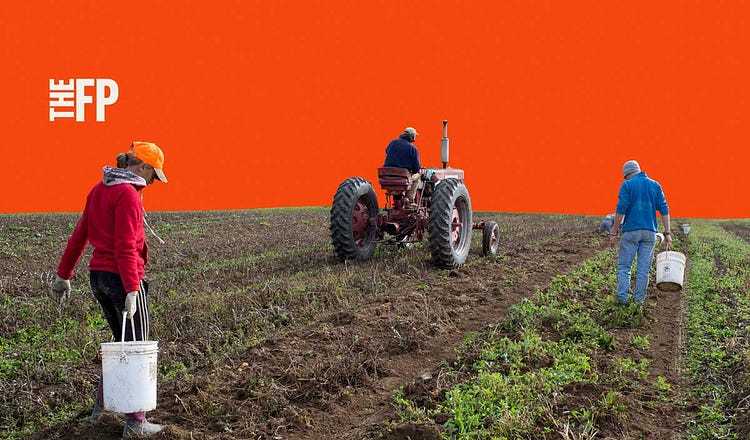What School Didn’t Teach Us: How It Feels to Work Hard

When Julia Steinberg arrived at the farm, she was “basically a brain in a vat.” But there, for the first time in her life, “I felt fully connected to my body.” (Photo illustration by The Free Press; image by Andrew Lichtenstein via Getty Images)
I know I’m going to spend my life on a laptop. So I volunteered on a farm before college, to get my hands dirty.
647
When we, the WWOOFers, went in for lunch at noon, I’d always bring two wheelbarrows full of carrots with me, pushing the carts with my dirt-caked hands. A lot of the carrots were misshapen, covered in soil, or sprouting roots, but I had pulled each one out of the ground myself. After four hours on my knees, I could feel the morning’s work in my body, so…
Continue Reading The Free Press
To support our journalism, and unlock all of our investigative stories and provocative commentary about the world as it actually is, subscribe below.
$8.33/month
Billed as $100 yearly
$10/month
Billed as $10 monthly
Already have an account?
Sign In

